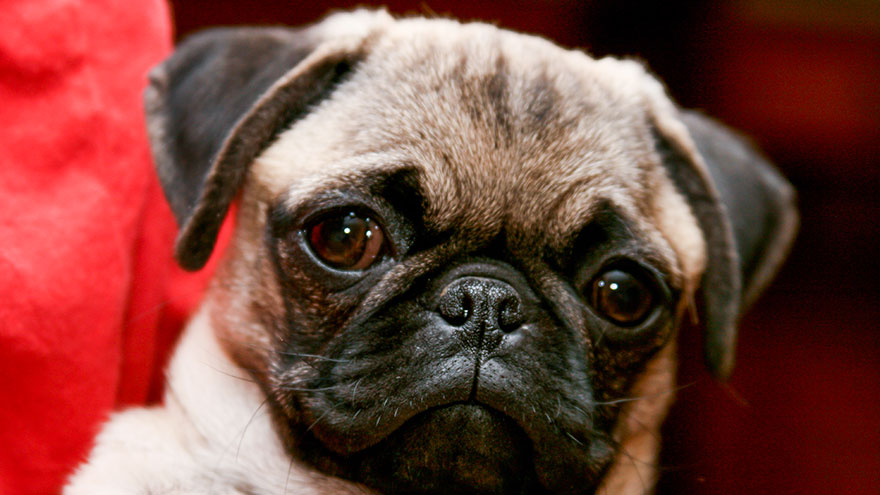Pug : 10 Most Common Questions
This stocky, compact dog is generally active and affectionate. The breed has its roots in China and dates back hundreds of years, to the pre-Christian era. Most Pugs are playful and make excellent family pets.
New owners should always watch for signs of colds and breathing problems with the Pug. The unique, short muzzle can cause breathing troubles. Some Pugs also experience eye problems, especially with the cornea, but overall, the Pug is an easy breed to own. We have put together 10 of the most common questions about the Pug and provided answers for each.

1. What is the history/background of the Pug?
The Pug breed dates back many years to China, where it was a favorite of Chinese royal families. Merchants and ships crews returning from China first brought the dogs to Europe in the 16th century.
The Pug became very popular in Europe and Great Britain, often seen in the courts of Queen Victoria and with Napoleon Bonaparte’s wife Josephine. The American Kennel Club has recognized the breed since 1885.
2. What colors are the coats of Pugs?
The recognized colors are silver, apricot-fawn, and black. Pugs with silver and apricot-fawn coats should have distinct contrast in color on the face.
3. Are Pugs good family pets?
Yes, they are, though some find the Pug to be a bit stubborn overall. The Pug is a smart dog but may be quite sensitive to a harsh tone in the owner’s voice.
The Pug does react with some jealousy or stubbornness if family members do not pay enough attention to them. The Pug should do well with children and other pets.
4. What health problems does the Pug have?
Generally, the Pug is a dog that needs very little healthcare. However, the breed is prone to a form of brain inflammation that can be hereditary. Dogs of this shape, including boxers, bulldogs and Pugs, can be prone to hemivertebrae, a condition in which the vertebrae do not develop properly.
This can be a serious problem for the Pug. Pugs also may develop breathing problems because of their short snout. This dog does not do well in extremes of temperature.
5. How long do Pugs live?
A Pug that is well cared for and given the right diet may live 12 years to 15 years. The breed does tend to become overweight if given the opportunity to eat too much.
Some regular exercise is recommended.
6. What personality/temperament should I expect from my Pug?
A Pug is alert and intelligent, with a sense of humor and playfulness thrown in for good measure. This little dog can be a bit mischievous, especially if left alone for a period. The Pug will react well to challenging play but may bore easily if the training is too repetitive.
The Pug can be a good watchdog and should get along well with other dogs and other family pets.
7. How big does a Pug get?
This is one of the smaller breeds of dog, with most adult Pugs standing about 12 inches to 14 inches tall. The adult Pug may weigh 13 pounds to 20 pounds.
8. I live in an apartment. Will my Pug be OK there?
Yes, the Pug should be fine in an apartment or small home. The dog will do well without a large yard, but you should plan to take your pet for a regular walk.
This not only provides some exercise but also keeps your Pug from getting bored.
9. What should I know about grooming my Pug?
The short, tight coat should need only occasional brushing and combing. Pugs do not do well with changes in temperature, so make sure to dry your dog quickly and thoroughly after a bath.
Shampoo only when necessary. The Pug can be prone to skin irritations.
10. Should I get my Pug from a breeder?
This is usually the best way to get a young Pug. We recommend visiting at least three good breeders. You should take some time to look closely at the living conditions, as well as the ways in which the breeder handles his dogs.
There may be excellent adult Pugs available from a rescue organization, but remember, these dogs come with different challenges than a puppy from a breeder.
Read More About Pug

